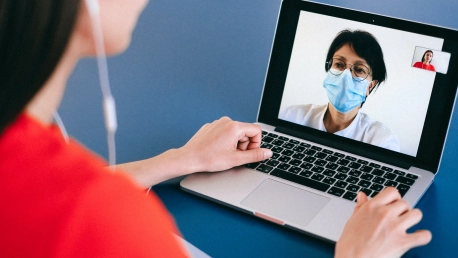The novel coronavirus outbreak has managed to disrupt the way most people lead their lives, putting an end to the seemingly permanent race for profit, prosperity, and leisure. Everything was replaced with isolation and quarantine measures. China has been suspected to be the country of origin, but information about the virus and its development proved to be scarce from the very beginning. At the time the new pandemic started taking the world by storm, most countries were largely unprepared for the battle. Even now, six months or more later, fragments of the story are still missing, and the world is still trying to find more details about the origin of the virus, the actual death rate, transmission mechanisms, and so much more.
New developments in technology have proved to be essential in fighting the virus, but the pandemic has also put a strain on industries everywhere, including the tech industry. And that is not the whole story. As some Asian countries successfully used digital surveillance tools to help track and contain the pandemic, the Western world found itself in the middle of a new crisis. Being governed by freedom and privacy principles, the use of monitoring tools and other new technologies provided policymakers with new complicated issues to resolve. So, what new technologies should be used in fighting the pandemic until the world has all the answers?
Artificial Intelligence (AI) May Prove to Be the Key
While it remains true that we need the best and the brightest in order to contain the pandemic, scientists and doctors have their own Achilles’ heel: the very virus they are trying to contain. Unlike humans, AI is immune to the novel coronavirus and may prove to be key in fighting the pandemic. One British company has already announced it will use its AI-driven platform to examine a selection of 15,000 potential Covid-19 treatments. Exscientia is currently working with US-based Calibr and Diamond Light Source in examining the potential remedies. And they are not alone in turning to AI for answers.
Healx has also reported that it will use its own AI platform, Healnet, to find the right treatment for Covid-19. Dr. David Brown, Chairman of Healx, said his company has the AI technology necessary to assist scientists in discovering the right treatments for Covid-19. “I have been doing this for 45 years and I have got three drugs to market,” he told BBC News.
Telemedicine Is Already Helping Health Systems Everywhere
Telemedicine or telehealth is already a useful tool for health systems around the world. In a nutshell, telemedicine means providing patients with health-related services and information through new electronic technologies and apps. It allows long-distance communication between patients and physicians, and it also provides health workers with useful tools to monitor and care for those in need. During the pandemic, medical practice went virtual even in countries that were still debating the future of telemedicine. In the US, millions of people were “seen” by doctors online or by phone, many of them for the first time ever.
Health systems everywhere are now relying on telemedicine alone, as it gives doctors and healthcare workers a new way to practice social distancing while still providing care for their patients. Companies like Teladoc, Doctor On Demand, and Amwell filled the gap created by the novel coronavirus pandemic, as they can provide doctors and medical services directly to those who apply for them. But regular physicians also joined the trend, as they started to inform and treat their patients using regular calls, smartphones, and computer apps.
New Apps Might Also Prevent Hospital Overcrowding
One thing is certain during the Covid-19 pandemic: hospital overcrowding must be avoided at all costs. One way of making sure hospitals remain safe is by developing call centers and apps that provide information about the pandemic to the wider public.
One of the first institutions to use such technologies was the World Health Organization (WHO). The international public health agency developed and launched a chatbot that provides people everywhere with new information about the pandemic via WhatsApp, Facebook Messenger, and Rakuten Viber. The chatbot answers frequently asked questions about the virus, while also sending regular updates.
“WHO’s aim is to reach as many people as possible with reliable health information through innovative digital technology. Information is powerful and can help save lives during this pandemic,” Dr. Tedros Adhanom Ghebreyesus, Director-General of the WHO, said.
Conclusion
South Korea, Taiwan, and Singapore managed to use digital technology in order to contain the Covid-19 outbreaks they were facing. But they did so at a cost, and that cost was privacy rights. While the West is still debating over necessary methods and sacrifices, technology remains a faithful ally when fighting Covid-19.









